Physically, they are only sounds made with the mouth or lines on a page or screen, but words, because they capture thoughts, can be profoundly inspirational, leading individuals and whole nations to do great things, from changing themselves for the better to changing the course of history. As a new year approaches, I will focus on the kind that inspire individuals with the hope that they will inspire you.
I have been collecting quotations at least since I was a teenager. My mom gave me a book of them when I was young, and I would read them and, at some point, make note of the ones I especially liked. As a resident assistant at Indiana University back in the 1980s, in fact, I typed up dozens of quotations on my old typewriter and pasted them outside my room. Yes, I was a word nerd (or maybe just a nerd) even then, but I think some of the guys on my floor actually read them. Maybe some of them even felt inspired. Now it's your turn.
"Vision without execution is hallucination."
-Thomas Edison
Have you come up with your New Year's resolutions for 2025? Setting some goals and creating a vision for the new you is a good start, but it's only a start. Like many other people throughout the ages, Thomas Edison had vision, but what really set him apart was his execution. Edison worked tirelessly to realize his vision, and the results speak for themselves. Most of us would be satisfied with one world-changing contribution. Edison had that at age 30, when he gave the world the phonograph, but he went on to contribute to advances in lighting, moving pictures, and more, ultimately registering more than 1000 patents in the United States. We don't have to spend countless hours in labs, as Edison did, to improve our lives and our world, but we do need to go beyond vision and execute. If you want to be a writer, you have to put pen to paper (or fingers to keys). If you want to be a painter, you have to put brush to canvas. If you want to run a 5K, you have to put sneaker to surface. To quote another famous line, "Just do it."
"If people only knew how hard I work to gain my mastery, it wouldn't seem so wonderful at all."
-Michelangelo
Most of the time, we see only the final products of great effort: the artistic masterpiece, the transformative invention, the physical feats on the court or the field. In their final forms, all of these peaks of human achievement look like miracles or wonders, but they really lie at the tail ends of long histories of work, such as practice, study, and thought. Baseball great Ted Williams practiced hitting until his hands bled. Great writers have read far more than they ever wrote. In this quotation, Michelangelo succinctly captures the secret to genius: hard work. It’s a secret worth remembering in the new year, when we will have another opportunity to realize our potential in whatever realms we want to master.
"Take care of your body. It's the only place you have to live."
-Jim Rohn
This one is self-explanatory, but I'll add one thought. Most of us think a great deal about the homes where we want to live. Maybe we even have a "dream home" in our minds or on our Pinterest accounts. No matter how grand or beautiful that home is, however, it cannot substitute for a healthy body. For most of us, building a healthy body is much easier than buying a dream home. The new year would be a splendid time to work on building or maintaining it. You may be amazed by how much impact you can have by tweaking your diet and adding a daily exercise routine.
"To have read the works of any great poet, to have beheld or heard the greatest works of any great painter or musician, is a possession added to the best things of life."
-Algernon Swinburne
In our individual pursuits of happiness, many of us become fixated on material possessions: grand houses, sleek cars, fashionable clothes, fancy gadgets. Few people can afford all the things they wish to own, however, and, ironically, research indicates that material things really don’t prove all that satisfying in the long run. What do bring satisfaction are experiences, and many of these experiences are free and available to anyone with access to a library and the internet. As Swinburne knew, experiences with literature, music, and the visual arts, such as painting and sculpture, are among the "best things of life." Is there a book you have always wanted to read or a musical masterpiece that you have heard mentioned but never actually heard? Make a point of giving yourself this experience in 2025. It also can be rewarding to explore new works by strolling through a museum or picking out concerti or symphonies on a music streaming service. (In a future issue of Mind Travel, I will offer some recommendations, based on my own experiences of reading, hearing, and seeing thousands of poems, stories, novels, sonatas, concerti, symphonies, paintings, sculptures, drawings, buildings, and other artistic works over my lifetime.) I encourage you to enrich your experience by reading something about the work, listening to a lecture about it, or talking to an expert. As a literature professor, I specialize in this kind of thing, and I could provide many examples of insights that illuminate a work of art, opening up new understanding and stimulation. Of course, one place where you can find these insights is this very newsletter, Mind Travel. In case you missed them, a list in this week’s issue contains links to a few of my columns on literature.
I hope you find these quotations inspiring. Now, follow Edison's example and get out there and execute!






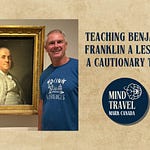
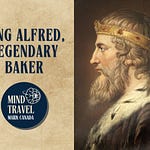

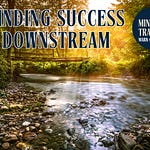
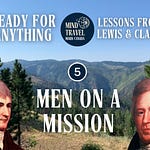
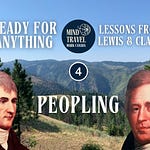
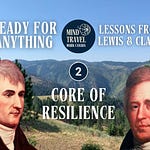
Share this post